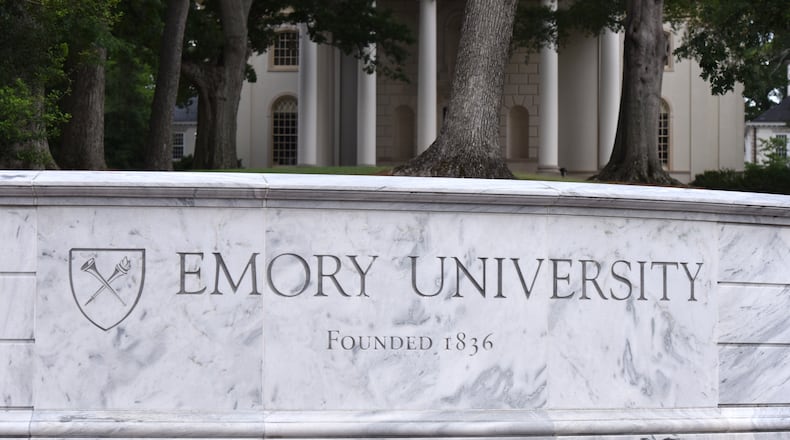If Emory University is successfully annexed by the city of Atlanta, an undeveloped 15.9-acre area near the university will be designated as a “Druid Hills Landmark District.”
The designation was approved by Urban Design Commission members on Wednesday. Emory filed a formal petition to join the city on June 27, a long anticipated move that will ultimately require approval by the Atlanta City Council.
According to Patrick Sullivan, a historic preservation planner with UDC, the wooded space along the westside of Peavine Creek already meets the historic and cultural criteria to qualify as a protected area by DeKalb County and will continue to be protected by the city of Atlanta.
Mayor Kasim Reed’s administration and Emory University both stated support for the Landmark District designation. The entire area of Emory University will now go before a Zoning Review Board on August 10 in the next step of the annexation process.
Part of the annexation debate centers around how the $2.5 billion in funding from last year's sales tax increase will be spent. Connecting MARTA's Lindbergh Station to Emory's Clifton Road corridor and nearby Children's Healthcare of Atlanta and the Centers for Disease Control and Prevention has been discussed as a top spending priority. However, state Sen. Vincent Fort, a candidate for mayor of Atlanta, thinks it is unfair for Emory get a jump on the funding ahead of other areas badly in need of MARTA expansion.
“When the people of Fulton County voted last November on the sales tax referendum, the transportation projects they voted on didn’t include Emory. Now, [Emory and the CDC] are using their power and money to get a jump on the funding, when it should be going to complete projects in southwest Atlanta,” he said.
One priority should be extending the MARTA route along Fulton Industrial Boulevard, which connects the H.E. Holmes station to South Fulton County, an area not receiving “its due concern,” he said, instead of giving priority to non-profit institutions that do not pay property taxes.
The office of Cathy Woolard, another mayoral candidate, said she does not oppose the annexation completely, but said City Council members should “take the time to consider what annexing Emory University will really mean for the city. We have not heard how much it will cost Atlanta taxpayers annually to provide services like police, fire, and sanitation services to a large institution that pays zero in taxes.”
Fort also criticized the lack of transparency in the annexation process, which he said has moved too quickly since Emory filed its petition at the end of June. The final vote is scheduled for September 5, just two months after the legislation was introduced.
Annexation Timeline for Emory University
Aug. 10 at 6 p.m., Zoning Review Board meeting and public hearing
Aug. 29, at 12:30 p.m., Community Development/Human Services Committee meeting and public hearing
Sept. 5 at 1 p.m., Full Council meeting, final vote on annexation and public hearing, no public comment
All meetings will take place at Atlanta City Hall, 55 Trinity Avenue, SW.
About the Author
Keep Reading
The Latest
Featured




